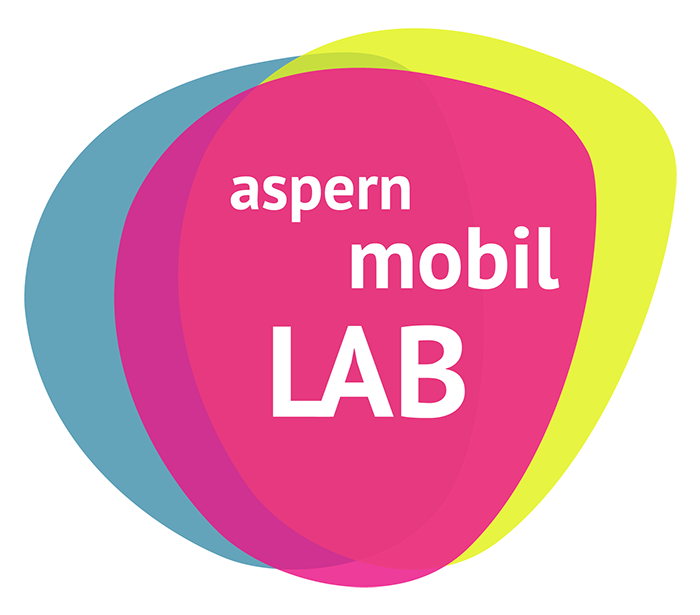New office premises & new student projects
Learn more about the new student projects of the course “Design Thinking” and explore our new premises at the same time!
The computer science students of the course “Design Thinking” (TU Wien) are looking forward to presenting their projects to you in the aspern.mobil LAB on Wednesday, 23.11.2022. The projects address current issues on the topics of mobility, climate change, sustainability and the use of public spaces.
For the further development of the projects, the students need your active help! Give spontaneous feedback on so-called “provocative props” or take on a package of small tasks – also known as “cultural probes” – for a few days and thereby help the students to further refine their exciting project ideas.
Join us for the official opening of the new aspern.mobil LAB at 6 p.m., explore the LAB and enjoy the exchange with us and other visitors! Snacks and drinks will be provided!
If you would like to take on a “cultural probe” package, please contact us in advance by email to gerfried.mikusch@mobillab.wien – this will ensure that there will be enough packages available on Wednesday!
Programme
- 3 p.m.: informal networking, tour of new premises
- 4 p.m.: interactive presentation of student projects with opportunity to give feedback
- 6 p.m.: ceremonial opening of the new site with snacks and drinks
About this year’s student projects
- Educational Augmented Reality (AR) Playground:
The idea is to develop an educational AR playground with physical boxes equipped with AR markers over which visitors can move on a level. The AR aspect consists of a simulated city in which the boxes represent buildings. The users can change the design of the playground individually in the AR: they can draw ground characteristics of their choice, add shade trees and the like. After the adjustments, the design can then be evaluated in terms of heat distribution. - Interactive stories:
A story about climate change/sustainability is told with the Seestadt as the place of action. This story requires users to make decisions and people to interact with each other. These choices influence the story (e.g. the future of the Seestadt changes as a result of the choices made).
Definition: interactive storytelling = “a form of digital entertainment where the plot is not predetermined”, where “the user (also reader or player) experiences a unique story based on his/her interactions with the story world”. - SolusOasis:
This project aims to create an artefact that empowers communities with a strong emphasis on sustainability. For example, the device can include public displays linked to smartphones for interaction within a community. Playful approaches can be used to connect people and interact with the system together. The whole device should be powered by renewable energy and use sustainable materials. - Teaching urban gardening interactively:
Urban gardening in the Seestadt is hampered by a lack of suitable garden spaces as well as long approval times. It is important to us to make it accessible to a broad section of the population in the Seestadt. For this purpose, public interactive plant displays will be used to encourage people to practise urban gardening within their own four walls. Furthermore, they should create awareness for the positive effects of urban gardening on the climate and contribute to bringing the inhabitants of the Seestadt closer together and giving marginalised groups, such as migrants, a voice.







